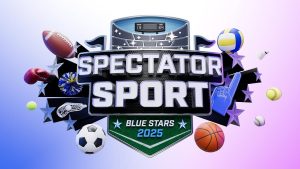Gender identity, intersectionality in modern society discussed
October 22, 2014
Love knows no boundaries. On Oct. 15, Robyn Ochs, an educator and activist, spoke at UW-La Crosse about sexual orientation and gender identity. For many years in our society have marriage and romantic relationships been seen as relationships strictly between a man and a woman. Many times, society has labeled men and women their respective genders because of the biological sex they were born as. However, these views have been challenged and expressed by many of those who feel otherwise, including Ochs.
When questioned about how long she has been speaking about sexual orientation and gender identity Ochs replied, “I’ve been doing this work for almost 30 years. And for a long time I did it occasionally or part time and I’ve been doing it full time for the past six years.”
Ochs has spent the entire academic year traveling across the country speaking to and informing individuals about sexual orientation and gender identity.
Ochs and her wife have been married for ten and a half years, and it wasn’t until college that Ochs realized her sexual orientation. Ochs expressed that humans, gender identity and sexuality are more complicated than assumed and are not merely made up of questions that can be answered with “yes” or “no.”
She explained that humans are intersectional.
Intersectionality is the idea that humans are made up of multiple categories of identity that intersect, impact and affect one another. Depending on which categories of identity an individual possesses, such as gender, ethnicity, religion and age, the intersecting of these identities has an effect on the experience an individual has with each of their other identities.
To further enhance the knowledge of the attendees who attended her program of the complexity of the sexuality and gender identity, Ochs involved them in an activity. The activity Ochs arranged for her attendees allowed them to stay anonymous. It allowed the attendees to see the reality of change and difference in sexual orientation and gender identity between the individuals that attended.
“I hope that it makes people feel validated. I hope that it makes people who have been feeling alone less alone,” Ochs said. “And I hope that it makes people who are relatively new to the subject more thoughtful and more aware.”
“It enabled me to expand my knowledge about the subject,” Tony Lor, a senior at UW-L, said of the impact of the program. “It also helped me to understand how I can be a better advocate for someone who is close to me.”
On Oct. 6, the day of Ochs trip from Boston to Detroit, marriage equality had been accepted in 19 states. Later that day, two hours after her departure and arrival to Detroit, the number of states that had marriage equality had jumped to 24. Ochs expressed that she believes that it is important for individuals to have the choice to get married as they choose.





